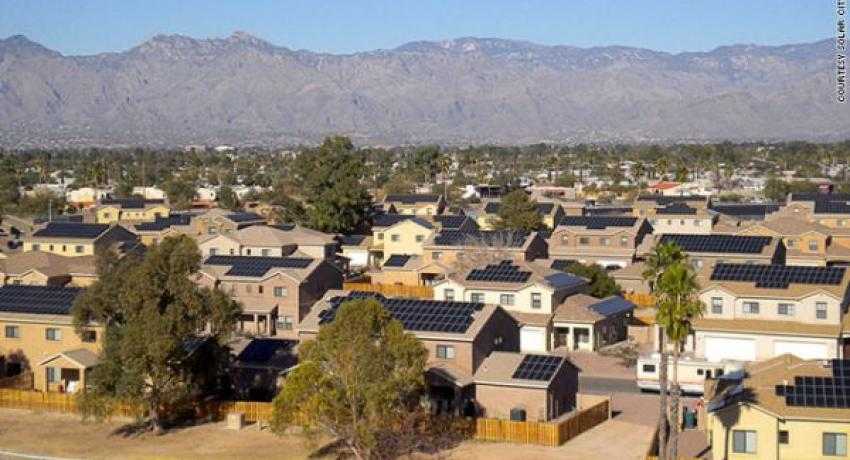APS aims to compete with Arizona solar installers
If you can’t beat ‘em, join ‘em.
That seems to be the latest strategy of utility company Arizona Public Services in managing the threat rooftop solar poses to its business model.
The battle between the solar industry and utility companies has made more headlines and stirred more drama and controversy over the last year in Arizona than in almost any other state.
Solar advocates have denounced Arizona Public Utilities use of ratepayer money to fund sneaky “dark money” anti-solar campaigns. And it seemed like the utility was grasping at straws to find ways to eliminate the threat of distributed rooftop solar – first targeting net metering benefits and then property tax exemptions for rooftop solar panels.
The utility’s latest strategy is by far its best. Instead of awkwardly professing public support for rooftop solar while simultaneously encouraging legislation that would diminish it, APS wants to put solar on the roofs of 3,000 Phoenix-area homes.
It sounds pretty great. And from an environmental standpoint, it is. It’s an all-around clever idea. Instead of leasing land and building another 20-megawatt solar farm in the undeveloped desert, APS has asked the Arizona Corporation Commission to allow it to spend $57 to $70 million of ratepayer money to install solar panels on homes and businesses and lease the roof space for a flat $30 per month.
The plan helps APS make its 15 percent renewable energy portfolio standard, eliminates the need to use undeveloped land, keeps generation closer to demand and enables people who don’t have the credit worthiness needed to buy or lease rooftop solar installations to get a discount on their bill and boast solar on their roofs. Oh, and APS will use local solar installers to do all the work.
So what’s wrong with this plan?
There’s just one issue. The solar industry hates this idea.
The Arizona Solar Energy Industries Association has come out in strong opposition of the APS proposal.
“This is a massive expansion of the monopoly into an area that is well served by the free market,” said Corey Garrison, CEO of Southface Solar and SEIA treasurer.
The utility will use ratepayer money to buy and install solar panels and will enjoy the same guaranteed profit on its solar investment as it receives on all of its other power generation equipment.
APS’ new plan destroys the spirit of distributed solar generation, solar advocates argue. Rooftop solar isn’t just about clean energy. It’s also about energy independence and creating choice outside of the monopoly utility. If the utility can compete with free-market solar companies using all the advantage of its guaranteed profits, Goliath just got even bigger than David, and the competition will likely grow as dull and predictable as the Germany and Brazil World Cup game.
Other utilities are installing rooftop solar as well, but they’re doing it through the unregulated markets with affiliates. If APS gets approval, it will be the first utility to install rooftop solar through the regulated monopoly model.




